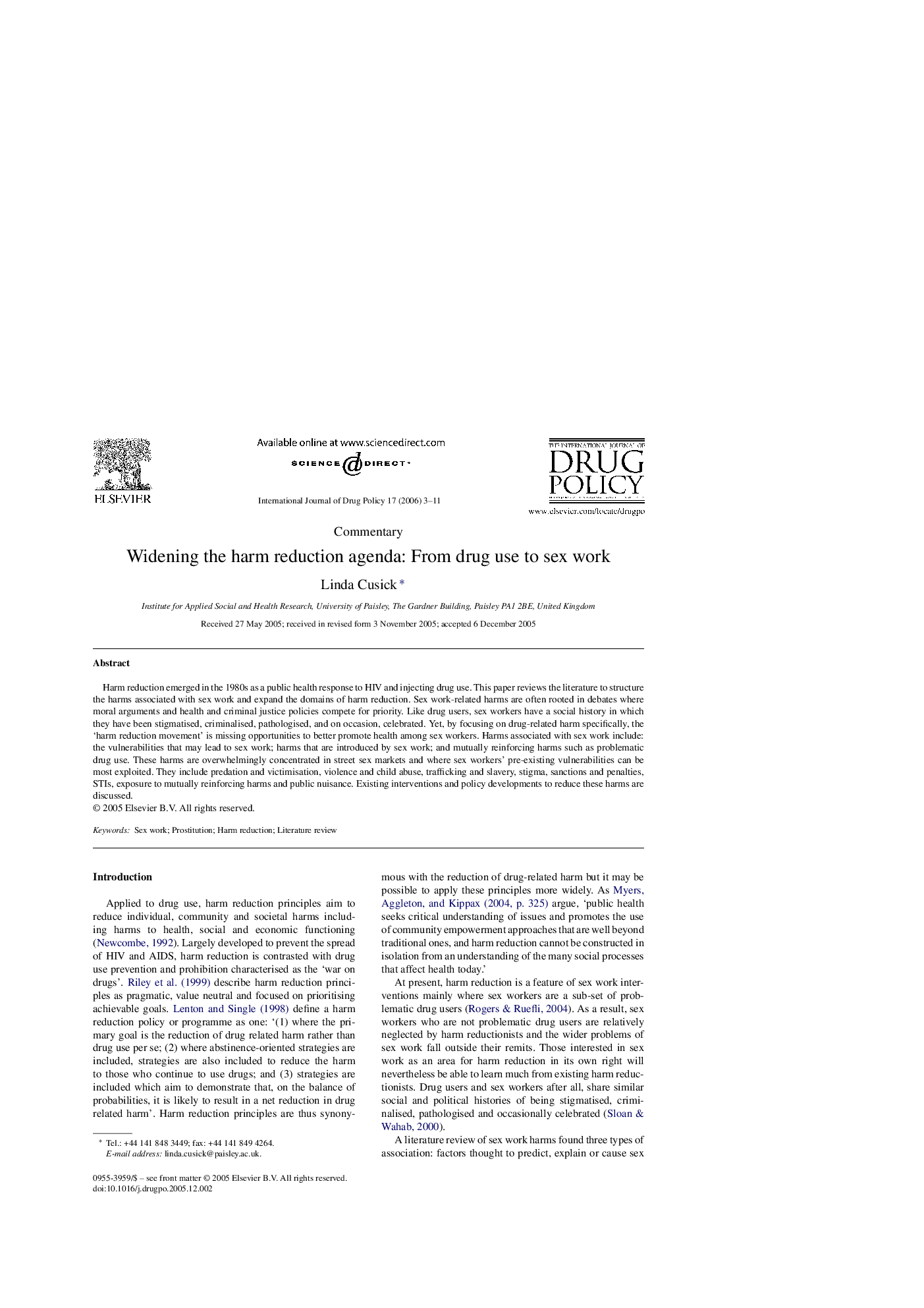| Article ID | Journal | Published Year | Pages | File Type |
|---|---|---|---|---|
| 1075863 | International Journal of Drug Policy | 2006 | 9 Pages |
Harm reduction emerged in the 1980s as a public health response to HIV and injecting drug use. This paper reviews the literature to structure the harms associated with sex work and expand the domains of harm reduction. Sex work-related harms are often rooted in debates where moral arguments and health and criminal justice policies compete for priority. Like drug users, sex workers have a social history in which they have been stigmatised, criminalised, pathologised, and on occasion, celebrated. Yet, by focusing on drug-related harm specifically, the ‘harm reduction movement’ is missing opportunities to better promote health among sex workers. Harms associated with sex work include: the vulnerabilities that may lead to sex work; harms that are introduced by sex work; and mutually reinforcing harms such as problematic drug use. These harms are overwhelmingly concentrated in street sex markets and where sex workers’ pre-existing vulnerabilities can be most exploited. They include predation and victimisation, violence and child abuse, trafficking and slavery, stigma, sanctions and penalties, STIs, exposure to mutually reinforcing harms and public nuisance. Existing interventions and policy developments to reduce these harms are discussed.
